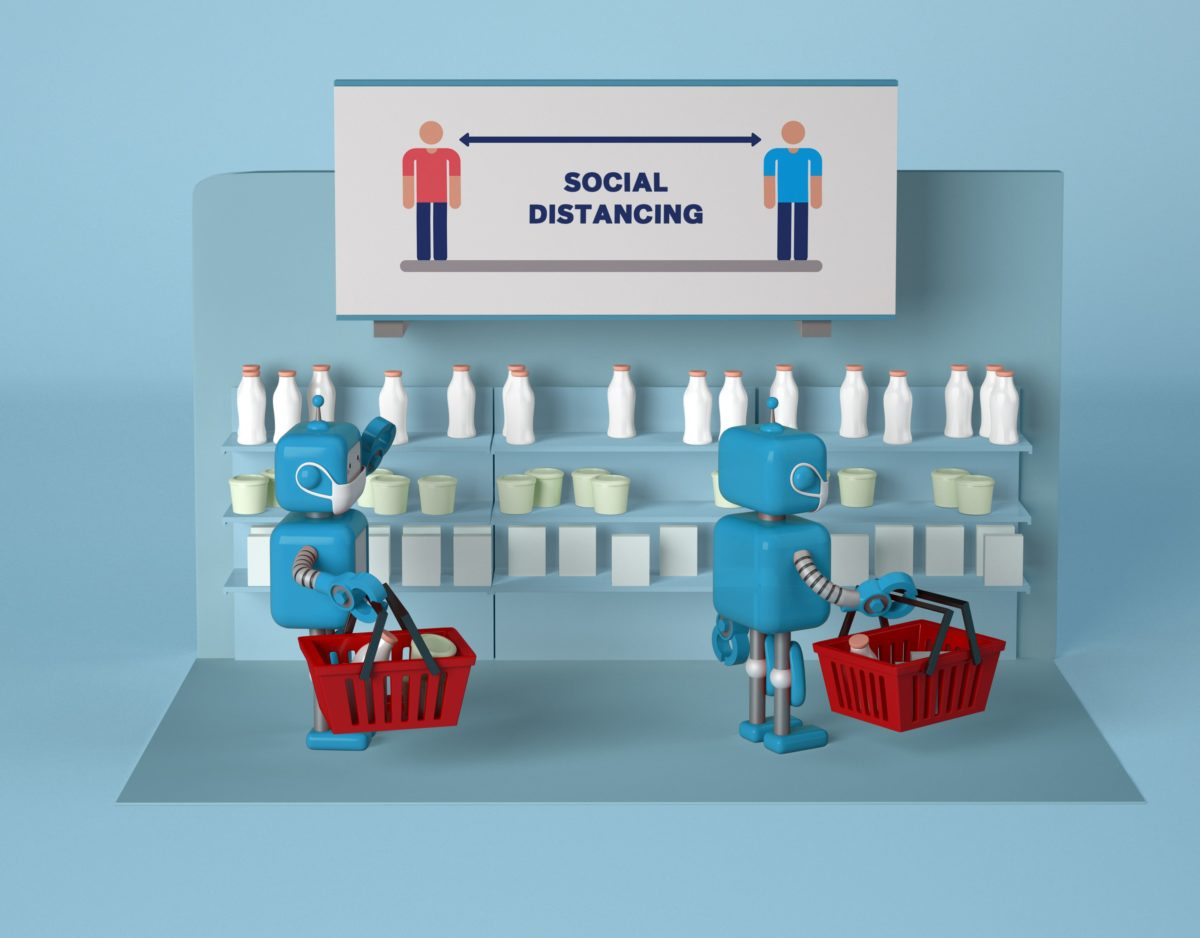
The rise of robots in healthcare industry during COVID-19
Imagine with me the last time you shook someone’s hand, attended an event, completed a week of studies in school or worked from the office. Obviously, 2020 has been a particular year: our social life and habits have been deeply impacted by COVID-19.

Maintaining one meter distance between people is the new norm and this brings new problems to industries. Is there any way to rollback and continue living like we used to, without putting ourselves and others in danger?
Robots were designed to look and act like us. They can do whatever we teach them, perhaps much more effectively, without falling ill or needing breaks and most importantly, robots don’t need to be isolated during a pandemic.
In the future, robots will replace humans, a subject that has been a matter of debate for decades. But as the COVID-19 pandemic appeared, it looks like robots are here to help workers instead of replacing them.
Here is few examples on how robots are being used during the pandemic in hospitals:
The experience of using robots during the COVID-19 pandemic presents an opportunity to understand that during a disaster, robots do not replace workers, it’s the opposite, they are helping them.
Indeed, robots perform tasks that a person could not do or do safely, like using pulses of ultraviolet light (UVD decontamination robots) to disinfect the air and surfaces of hospitals, to answer patients questions and to bring medicine or food to the patient.
In Italy, the robot “Ari” developed by Pal robotics, used to make sure patients did take their treatments, and the robot is also able to interact with the patients in case they don’t feel too impacted by the lack of social stimulation.
Otherwise, in Japan, an automated COVID-19 testing machine prototype built by Kawasaki Heavy industries inc, uses a robotic arm to take a sample from a person’s nose and can deliver the results in about 80 minutes.
The COVID-19 pandemic pushed all sectors to accommodate and be more flexible. The development of the next robots technologies will have an important impact in terms of productivity, jobs and user experience.
What about the post-Covid-19 era? Will the robots play a second hand in healthcare?